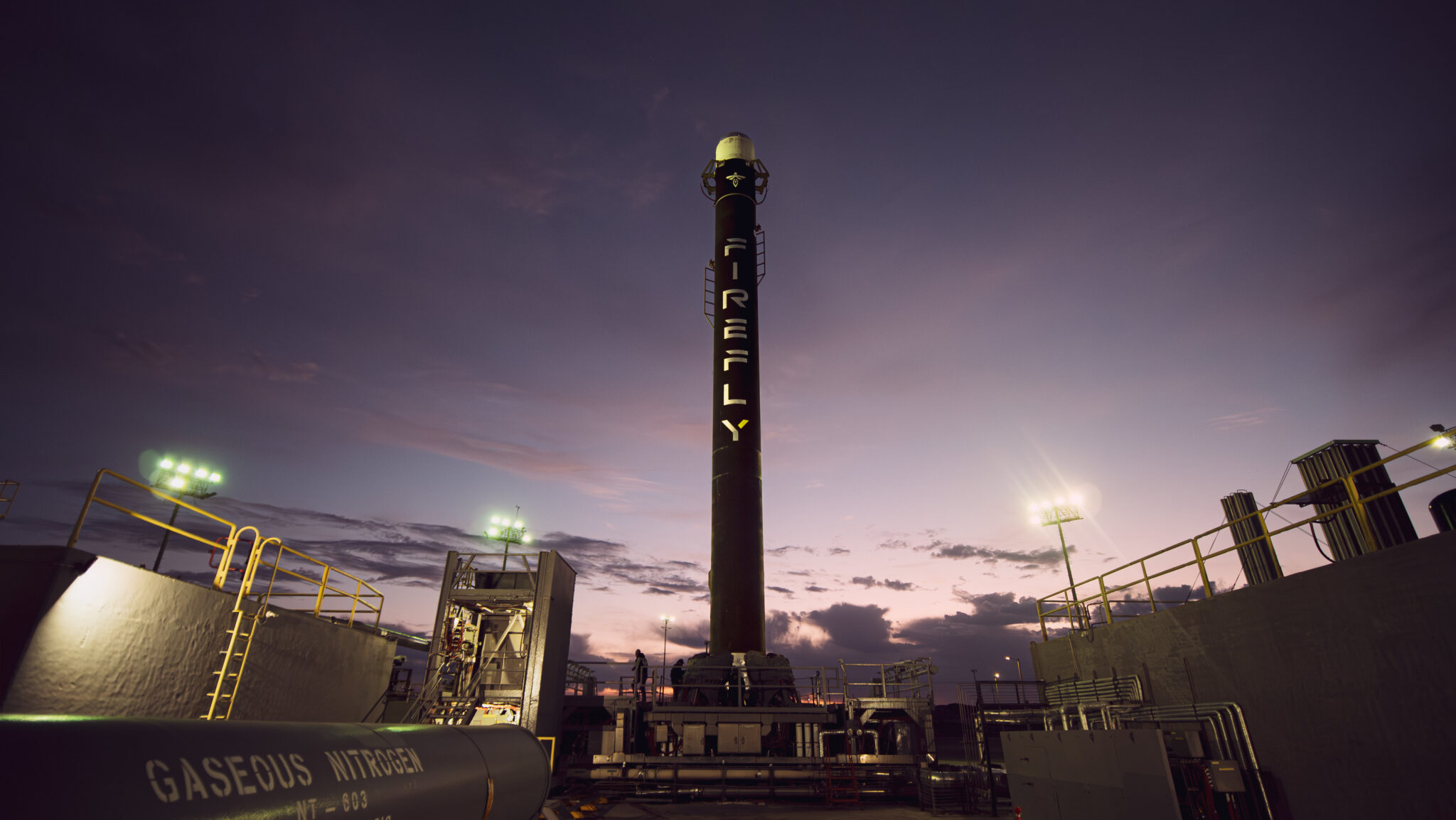Private Rocketeer Looks To August Flight
Breaking space news, the latest updates on rocket launches, skywatching events and more!
You are now subscribed
Your newsletter sign-up was successful
Want to add more newsletters?

Delivered daily
Daily Newsletter
Breaking space news, the latest updates on rocket launches, skywatching events and more!

Once a month
Watch This Space
Sign up to our monthly entertainment newsletter to keep up with all our coverage of the latest sci-fi and space movies, tv shows, games and books.

Once a week
Night Sky This Week
Discover this week's must-see night sky events, moon phases, and stunning astrophotos. Sign up for our skywatching newsletter and explore the universe with us!

Twice a month
Strange New Words
Space.com's Sci-Fi Reader's Club. Read a sci-fi short story every month and join a virtual community of fellow science fiction fans!
"August would be a good bet," said Elon Musk, chairman and chief executive officer of Space Exploration Technologies Corporation (SpaceX) of El Segundo, California. The rocketeer and his team are anxiously awaiting liftoff of a Titan 4 carrying a classified payload from Vandenberg Air Force Base in California - now slated to take to the air around mid-July, he said.
"We expect the range would assign us a launch date that is within two to three weeks of the Titan 4 departure," Musk told an audience at the 24th International Space Development Conference on Friday. The event is being held here May 19-22, and sponsored by the National Space Society.
Southwest Airlines of rocketry
Why is Musk bankrolling a booster?
"As long as it costs us hundreds of millions of dollars to put a few people just above the surface of the Earth...we are never gong to get anywhere. We're not going to become a spacefaring civilization and, ultimately, become a multi-planet species," Musk explained. He likened his launch-for-hire business strategy to becoming the Southwest Airlines of rocketry, with his firm committed to rethinking the space transportation business.
Since starting SpaceX some three years ago, "we've designed an entire rocket from scratch," Musk pointed out.
SpaceX is the third company founded by Musk. Earlier he co-founded PayPal, a leading electronic payment system, serving as the company's chairman and CEO, in which he was the largest shareholder until the company was acquired by eBay for $1.5 billion in October 2002.
Breaking space news, the latest updates on rocket launches, skywatching events and more!
Before PayPal, Musk co-founded Zip2 Corporation in 1995 - a leading provider of enterprise software and services to the media industry. It was sold to Compaq for $307 million in an all cash transaction.
7/11 strategy and a big gulp
While Falcon 1 remains yet to fly, Musk said he and his team have focused for the past year on the Falcon 5 booster - the firm's medium-lift launcher that is roughly in the class of a Boeing Delta 2-heavy vehicle. "It will be safe enough to carry people," he added, having an "engine out" capability and still make orbit.
Musk has eyes on a bigger prize. To build even larger vehicles beyond the Falcon 5, but added: "We'd like to get some things accomplished before we claim we're going to do other things."
"We'll be announcing something fairly significant later this year as far as much more capability than is currently represented. But we'd like to have one launch before making any big announcement in that direction. But you can expect that...expect that from a strategy standpoint. Call it the 7/11 strategy. We're going small, medium, large and extra-large, or big gulp, or whatever it is."
Hot fire test
For now, it's getting the Falcon 1 off the ground at Vandenberg Air Force Base. A "hot fire" engine test of the booster was slated for May 21.
"It'll be a complete launch simulation including about 5 seconds of flame on the ground," Musk told SPACE.com. "Five seconds feels like a long time if you are there by the way," he added.
The engine burn on the pad will lead to the projected August liftoff of the Falcon 1, Musk said. Onboard the rocket as payload is TacSat-1, built and integrated by the U.S. Naval Research Laboratory for the Pentagon's Office of Force Transformation.
In the event that the Titan 4 is significantly delayed, the SpaceX rocket would be moved to another launch site now being built at Kwajalein Atoll in the western Pacific Ocean.
"The last bit of concrete is getting poured next week," Musk said. The Kwajalein launch site is almost all done, he noted, and would be ready to handle a launch in the late August timeframe.
Leonard David is SPACE.com's Senior Space Writer

Leonard David is an award-winning space journalist who has been reporting on space activities for more than 50 years. Currently writing as Space.com's Space Insider Columnist among his other projects, Leonard has authored numerous books on space exploration, Mars missions and more, with his latest being "Moon Rush: The New Space Race" published in 2019 by National Geographic. He also wrote "Mars: Our Future on the Red Planet" released in 2016 by National Geographic. Leonard has served as a correspondent for SpaceNews, Scientific American and Aerospace America for the AIAA. He has received many awards, including the first Ordway Award for Sustained Excellence in Spaceflight History in 2015 at the AAS Wernher von Braun Memorial Symposium. You can find out Leonard's latest project at his website and on Twitter.
